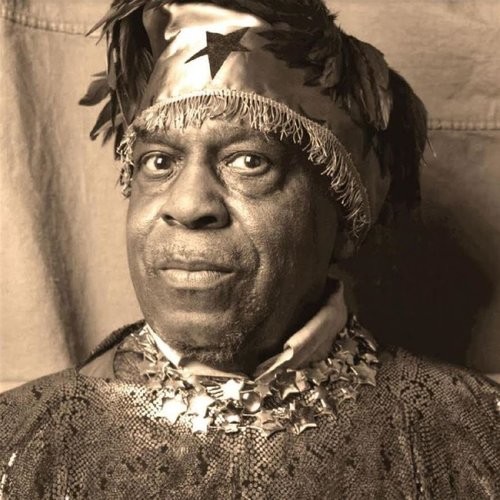
Artist: Sun Ra
Album: Inside the Light World: Sun Ra Meets the OVC
Genre: Avant-Garde Jazz, Free Jazz
Label: Strut Records
Released: 2024
Quality: FLAC (tracks+.cue)
Tracklist:
- CD 1:
- Calling Planet Earth (11:07)
- Theme of the Stargazers (8:40)
- Love in Outer Space (DX7 interlude) (2:38)
- Love in Outer Space (6:36)
- Stardust from Tomorrow (5:25)
- El Is a Sound of Joy (7:48)
- CD 2:
- Sunset on the Nile (DX7 interlude) (3:25)
- Sunset on the Nile (7:43)
- East of the Sun (4:45)
- Saturn Rings (6:08)
- Calling Planet Earth (piano interlude) (2:24)
- Discipline 27-II (22:35)
DOWNLOAD FROM FILECAT.NET >>>
In 1986, Sun Ra and the Arkestra performed an in-studio session in which Ra was equipped with the Outer Space Visual Communicator, a sort of keyboard-triggered fractal light projector. A few videos surfaced, but the entire studio performance was unheard until Sun Ra archivist Irwin Chusid contacted OVC creator Bill Sebastian, and the two constructed an album from the tapes in Sebastian's archives. While the kaleidoscopic projections in the videos majestically illustrate the music's psychedelic qualities, the fully mixed performance functions perfectly well without the visuals, particularly considering that it was never initially intended for an album release. For the most part, this is the more accessible, swing-oriented side of the Arkestra, with clearly defined grooves and melodies, yet still brimming with outer space lore. Interspersed with a handful of short keyboard interludes, these performances allow the Arkestra to stretch out and explore the grooves to the fullest. It sounds loose and spontaneous, especially during the heavily percussive moments, but it generally avoids chaos and freak-outs. The entire performance is filled with good vibes and friendly energy, even on the 22-minute "Discipline 27-11," in which Ra expresses his disappointment with the people of planet Earth. An entire full-length film of the Arkestra performing with the OVC projections would be most welcome, but Inside the Light World sounds wonderful on its own.
Review by Paul Simpson

